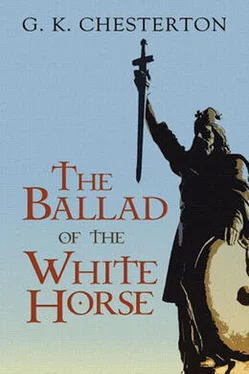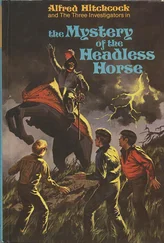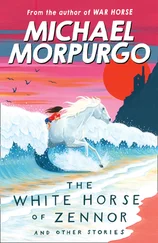For the White Horse knew England
When there was none to know;
He saw the first oar break or bend,
He saw heaven fall and the world end,
O God, how long ago.
For the end of the world was long ago,
And all we dwell to–day
As children of some second birth,
Like a strange people left on earth
After a judgment day.
For the end of the world was long ago,
When the ends of the world waxed free,
When Rome was sunk in a waste of slaves,
And the sun drowned in the sea.
When Caesar's sun fell out of the sky
And whoso hearkened right
Could only hear the plunging
Of the nations in the night.
When the ends of the earth came marching in
To torch and cresset gleam.
And the roads of the world that lead to Rome
Were filled with faces that moved like foam,
Like faces in a dream.
And men rode out of the eastern lands,
Broad river and burning plain;
Trees that are Titan flowers to see,
And tiger skies, striped horribly,
With tints of tropic rain.
Where Ind's enamelled peaks arise
Around that inmost one,
Where ancient eagles on its brink,
Vast as archangels, gather and drink
The sacrament of the sun.
And men brake out of the northern lands,
Enormous lands alone,
Where a spell is laid upon life and lust
And the rain is changed to a silver dust
And the sea to a great green stone.
And a Shape that moveth murkily
In mirrors of ice and night,
Hath blanched with fear all beasts and birds,
As death and a shock of evil words
Blast a man's hair with white.
And the cry of the palms and the purple moons,
Or the cry of the frost and foam,
Swept ever around an inmost place,
And the din of distant race on race
Cried and replied round Rome.
And there was death on the Emperor
And night upon the Pope:
And Alfred, hiding in deep grass,
Hardened his heart with hope.
A sea–folk blinder than the sea
Broke all about his land,
But Alfred up against them bare
And gripped the ground and grasped the air,
Staggered, and strove to stand.
He bent them back with spear and spade,
With desperate dyke and wall,
With foemen leaning on his shield
And roaring on him when he reeled;
And no help came at all.
He broke them with a broken sword
A little towards the sea,
And for one hour of panting peace,
Ringed with a roar that would not cease,
With golden crown and girded fleece
Made laws under a tree.
The Northmen came about our land
A Christless chivalry:
Who knew not of the arch or pen,
Great, beautiful half–witted men
From the sunrise and the sea.
Misshapen ships stood on the deep
Full of strange gold and fire,
And hairy men, as huge as sin
With horned heads, came wading in
Through the long, low sea–mire.
Our towns were shaken of tall kings
With scarlet beards like blood:
The world turned empty where they trod,
They took the kindly cross of God
And cut it up for wood.
Their souls were drifting as the sea,
And all good towns and lands
They only saw with heavy eyes,
And broke with heavy hands,
Their gods were sadder than the sea,
Gods of a wandering will,
Who cried for blood like beasts at night,
Sadly, from hill to hill.
They seemed as trees walking the earth,
As witless and as tall,
Yet they took hold upon the heavens
And no help came at all.
They bred like birds in English woods,
They rooted like the rose,
When Alfred came to Athelney
To hide him from their bows
There was not English armour left,
Nor any English thing,
When Alfred came to Athelney
To be an English king.
For earthquake swallowing earthquake
Uprent the Wessex tree;
The whirlpool of the pagan sway
Had swirled his sires as sticks away
When a flood smites the sea.
And the great kings of Wessex
Wearied and sank in gore,
And even their ghosts in that great stress
Grew greyer and greyer, less and less,
With the lords that died in Lyonesse
And the king that comes no more.
And the God of the Golden Dragon
Was dumb upon his throne,
And the lord of the Golden Dragon
Ran in the woods alone.
And if ever he climbed the crest of luck
And set the flag before,
Returning as a wheel returns,
Came ruin and the rain that burns,
And all began once more.
And naught was left King Alfred
But shameful tears of rage,
In the island in the river
In the end of all his age.
In the island in the river
He was broken to his knee:
And he read, writ with an iron pen,
That God had wearied of Wessex men
And given their country, field and fen,
To the devils of the sea.
And he saw in a little picture,
Tiny and far away,
His mother sitting in Egbert's hall,
And a book she showed him, very small,
Where a sapphire Mary sat in stall
With a golden Christ at play.
It was wrought in the monk's slow manner,
From silver and sanguine shell,
Where the scenes are little and terrible,
Keyholes of heaven and hell.
In the river island of Athelney,
With the river running past,
In colours of such simple creed
All things sprang at him, sun and weed,
Till the grass grew to be grass indeed
And the tree was a tree at last.
Fearfully plain the flowers grew,
Like the child's book to read,
Or like a friend's face seen in a glass;
He looked; and there Our Lady was,
She stood and stroked the tall live grass
As a man strokes his steed.
Her face was like an open word
When brave men speak and choose,
The very colours of her coat
Were better than good news.
She spoke not, nor turned not,
Nor any sign she cast,
Only she stood up straight and free,
Between the flowers in Athelney,
And the river running past.
One dim ancestral jewel hung
On his ruined armour grey,
He rent and cast it at her feet:
Where, after centuries, with slow feet,
Men came from hall and school and street
And found it where it lay.
"Mother of God," the wanderer said,
"I am but a common king,
Nor will I ask what saints may ask,
To see a secret thing.
"The gates of heaven are fearful gates
Worse than the gates of hell;
Not I would break the splendours barred
Or seek to know the thing they guard,
Which is too good to tell.
"But for this earth most pitiful,
This little land I know,
If that which is for ever is,
Or if our hearts shall break with bliss,
Seeing the stranger go?
"When our last bow is broken, Queen,
And our last javelin cast,
Under some sad, green evening sky,
Holding a ruined cross on high,
Under warm westland grass to lie,
Shall we come home at last?"
And a voice came human but high up,
Like a cottage climbed among
The clouds; or a serf of hut and croft
That sits by his hovel fire as oft,
But hears on his old bare roof aloft
A belfry burst in song.
Читать дальше












